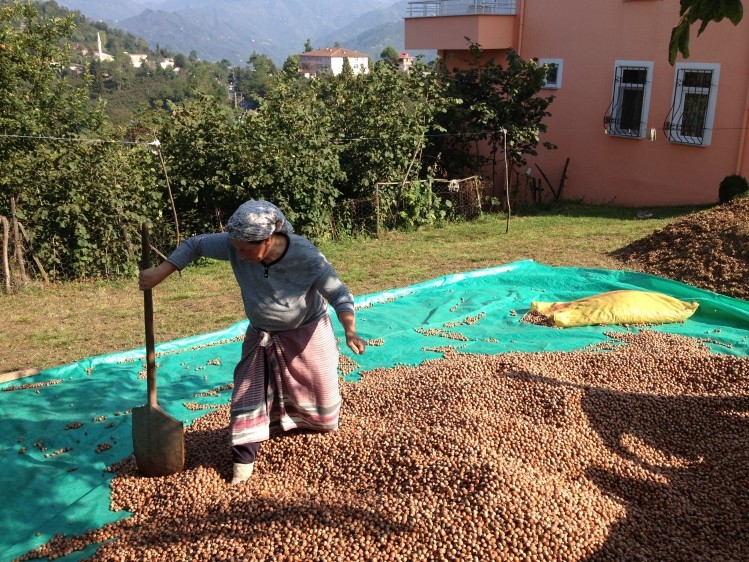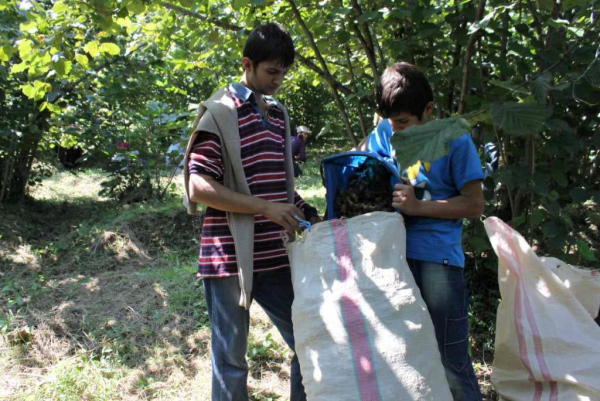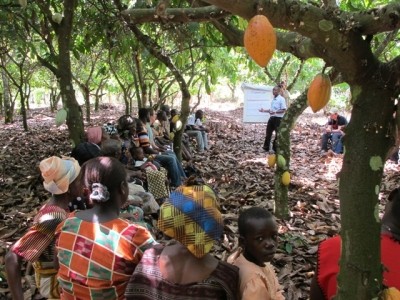Chocolatiers back project for world’s first certified sustainable hazelnuts

UTZ Certified has teamed with Spanish chocolate supplier Natra, Swiss retailer Migros’ dried fruits unit Delica and German retailer REWE Group.
The pilot project will run across three hazelnut producing regions in Turkey; Trabzon and Giresun in the Northeast, and Duzce in the Northwest with 175 participating farmers.
“This is the first project of its kind that is focused on sustainability in the hazelnut sector. Hazelnuts is one of the main inputs in the chocolate industry so it’s logical for us to take this step,” Han de Groot, executive director at UTZ Certified, told ConfectioneryNews.
Certified supply by 2016
The chocolate industry is a big buyer of hazelnuts. In the US, the world’s largest chocolate market, chocolate with hazelnuts was a $21m category last year, up 16% on the previous year, making it bigger than the white chocolate segment.
Ferrero is the world’s largest hazelnut buyer. It was not a financial backer to the UTZ-led project, but did provide input along with the Turkish government and NGOs.
Industry Initiatives
Nestlé runs its own hazelnut sustainability project in Turkey, while Ferrero has committed to tracing its entire hazelnut supply by 2020. The association of chocolate, biscuit and confectionery industries of Europe (CAOBISCO) has also been working on a multi-stakeholder approach to improving working conditions in hazelnut orchards in Turkey and boosting supply.
De Groot said of the participating companies: “It’s showing good will of the industry to pursue this issue. We hope more industry players will jump on the same boat.”
The first UTZ Certified hazelnuts are expected to be commercial available by 2016.
Improving productivity
“We want to focus on productivity and improve the productivity of small farmers – that includes quality,” said de Groot.
“The production right now is enough to supply demand, but there might be an issue in the future due to drought in the US and Turkey too. Right now it’s not an issue, but climate variability is a fact,” he said.
Social impact
UTZ hoped confectioners would also be persuaded to buy sustainable hazelnuts to combat unlawful child labor in Turkish hazelnut harvesting.
“Social issues on child labor and migrant workers are becoming more and more recognized by the industry. We know that there are child labor and migrant worker issues in hazelnut growing, particularly coming from Syria, Romania and Georgia," said De Groot.

Child labor and migrant workers
Dutch NGO FNV Bondgenoten said in a report that hazelnuts could be harvested by simply pulling nuts from branches. “The work is literally childishly simple, just why children are wanted by the clients of the subcontractors. They pick handy and are docile. Children are by consequence often more productive than adults.”

Children working in seasonal and migratory production has been flagged as one of the worst forms of child labor under International Labor Organization (ILO) Convention 182.
Migrant workers living in camps are regularly taken on as seasonal workers in Turkish hazelnut orchards and paid low wages. A hazelnut harvester earned $15.5 a day in 2011, according to a report by the Development Workshop.
Poor wages forced families to allow their children to miss school in order to work picking hazelnuts, it said.
“The conscious consumer is aware of these issues, but even if you are not, you want the industry to be responsible in delivering an ethical product - as a consumer you are expecting that,” said de Groot.
Premiums and communication
The organization has yet to decide how a manufacturer may communicate that their hazelnuts come from a sustainable source.
It is also too early to know if the premium manufacturers will pay for sustainable hazelnuts, it said. UTZ does not set minimum prices and prices are governed by market mechanisms.













